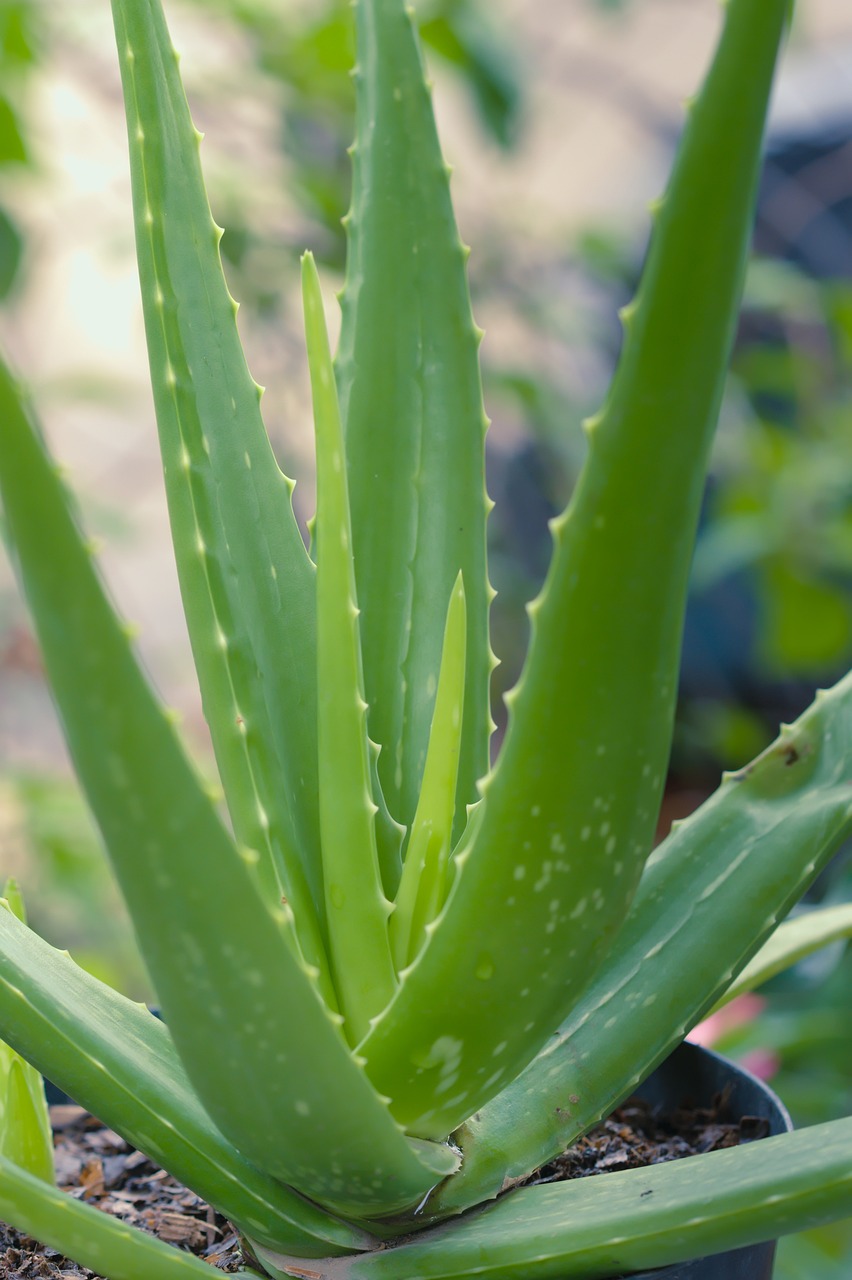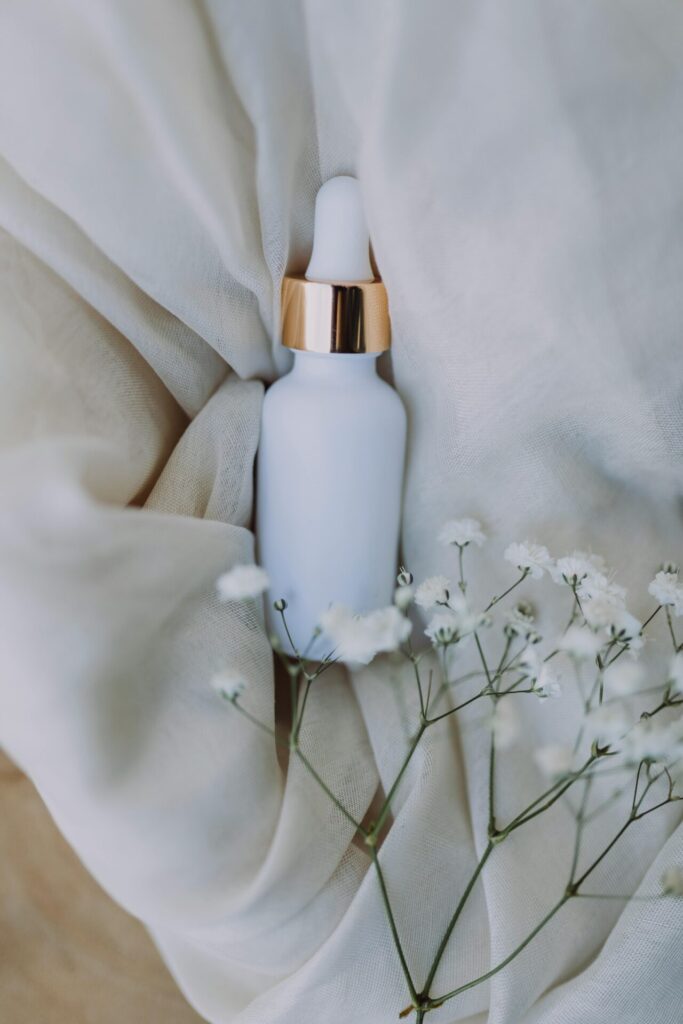Top 10 Homemade Face Masks for Clear and Pimple-Free Skin
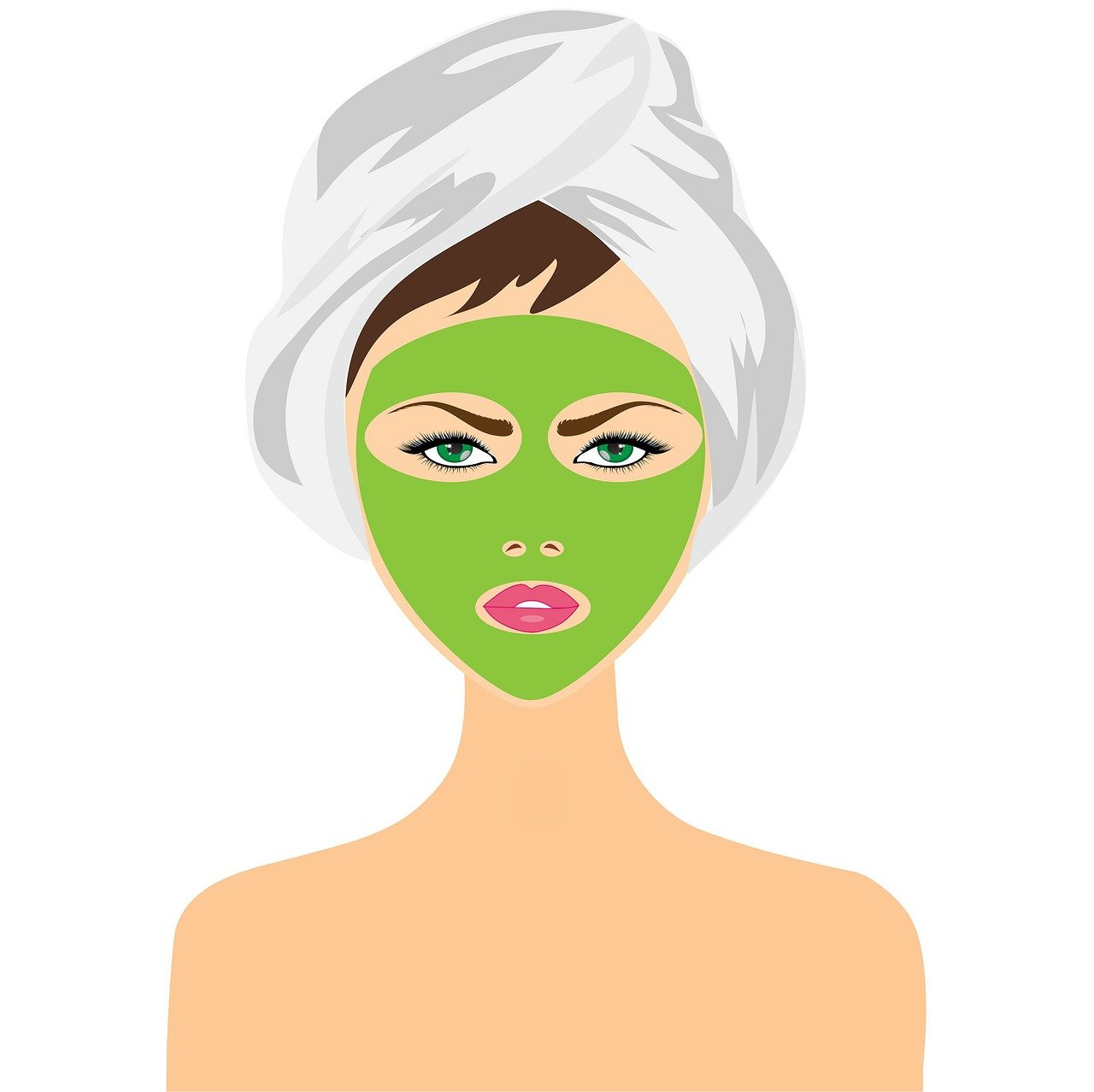
Are you struggling with stubborn pimples and looking for a natural solution to regain your clear, healthy skin? Look no further! Our “Top 10 DIY Herbal Face Masks for Clear, Pimple-Free Skin: Natural Solutions for Acne-Prone Complexions” article brings you the best homemade face masks recipes, specifically curated to tackle acne and reveal your skin’s natural radiance. These herbal diy face masks take advantage of the potency of natural ingredients, which are gentle on your skin yet effective in combating acne. Bid farewell to aggressive chemicals and synthetic additives, and welcome the benefits of nature’s solutions. In this article, we’ll provide you with an in-depth guide to the advantages of wearing natural at home face masks, advice on selecting the best mask for your skin type, and detailed directions for making and applying these herbal homemade face masks. Prepare to change your skincare regimen and reveal your healthiest skin yet!
Table of Contents
ToggleWhat is a Face Mask?
A face mask is a topical treatment applied to the skin, typically covering the entire face. It is created to address specific skin concerns by delivering concentrated, active ingredients to the skin. Face masks usually have a thicker consistency compared to other skincare products and should be left on the skin for a certain duration before rinsing it off from the face. They can assist in enhancing the general look and feel of the skin, while also addressing specific concerns like acne, dryness, or lackluster complexion.
Importance of Using Face Masks for Acne-Prone Skin
Face masks play a crucial role in the skincare routine for acne-prone skin, as they can effectively target acne-causing factors and offer several benefits. Here are some reasons why incorporating face masks into your routine is essential for managing acne-prone skin:
- Deep Cleansing: Face masks, especially those containing clay or activated charcoal, can deeply cleanse the skin by drawing out impurities, excess oil, and dirt from the pores. This reduces the likelihood of clogged pores, which can lead to breakouts.
- Exfoliation: Many face masks, particularly those containing alpha and beta hydroxy acids or gentle physical exfoliants, can aid in eliminating dead skin cells and encouraging cell renewal. This not only prevents pores from becoming clogged but also reveals smoother, brighter skin.1
- Anti-inflammatory and Soothing Properties: Face masks with calming and anti-inflammatory components, like green tea, aloe vera & chamomile, can help soothe redness and irritation associated with acne-prone skin, promoting a more even skin tone.
- Balancing Sebum Production: Excessive sebum (oil) production can contribute to acne breakouts. Certain facial masks can assist in controlling sebum production by absorbing surplus oil and delivering moisture to the skin, thus preserving a well-balanced and nourished appearance.2
- Targeted Treatment: Ingredients like salicylic acid, benzoyl peroxide, or tea tree oil, which target acne-causing bacteria and help to reduce existing breakouts while preventing future ones, are frequently found in face masks designed for skin prone to acne.
- Healing and Repair: Ingredients like niacinamide, vitamin C, or zinc can support the skin’s natural healing process, reducing the appearance of acne scars and promoting an overall healthier complexion.
- Enhancing Overall Skincare Routine: By offering a focused treatment that enhances your daily cleanser, face masks can increase the efficacy of your skincare regimen, toner, and moisturizer. This helps maintain a consistent skincare regimen, which is essential for managing acne-prone skin.
Face masks can help acne-prone skin by addressing the underlying causes of breakouts, relieving irritation, and fostering a balanced, healthy complexion. They are a great addition to any skincare routine.
Dangers of Non-Natural Products in Face Masks
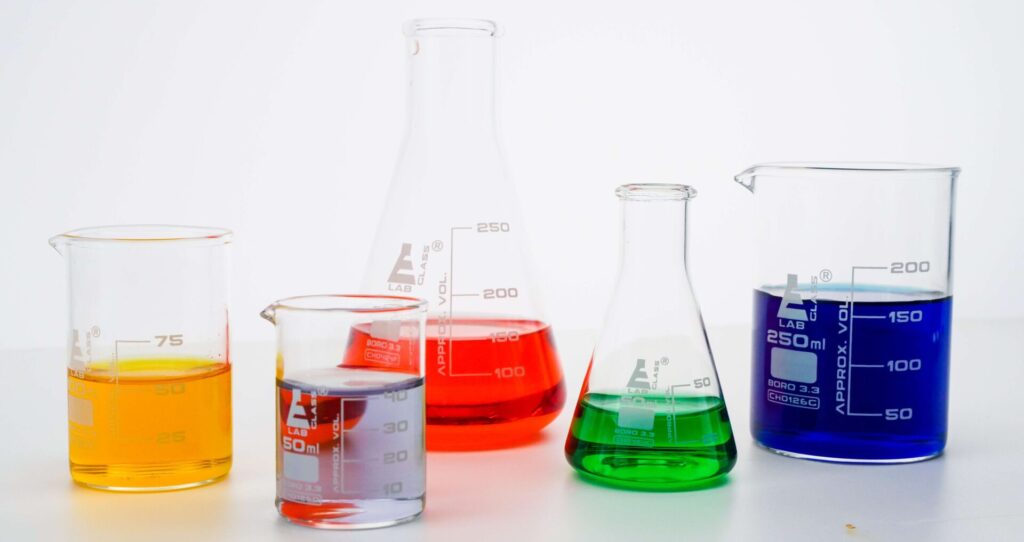
Using non-natural or synthetic products in face masks can pose several risks to your skin, particularly if you have acne-prone or sensitive skin. Here are some potential dangers associated with non-natural ingredients found in face masks:
- Irritation and Allergic Reactions: Synthetic ingredients, such as fragrances, preservatives, and dyes, can cause irritation, redness, or even allergic reactions in sensitive skin. These reactions may exacerbate existing acne issues or trigger new breakouts.
- Pore-Clogging Ingredients: Some non-natural face masks may contain comedogenic ingredients, such as mineral oil or certain silicones, which can clog pores and contribute to breakouts. It’s essential to choose non-comedogenic products, especially if you have acne-prone skin.
- Disruption of Skin Barrier: Some synthetic ingredients, like harsh surfactants or alcohol, can strip the skin of its natural oils, disrupting the skin’s barrier function. This may result in heightened sensitivity, dryness, and potentially more breakouts as the skin attempts to make up for the lack of hydration.
- Hormone Disruptors: Certain chemicals found in non-natural products, like parabens or phthalates, have been linked to hormone disruption, which can potentially affect the overall health and well-being of the user.
- Long-term Health Concerns: Some ingredients in non-natural face masks, such as formaldehyde-releasing preservatives or certain types of nanoparticles, have been associated with long-term health concerns. Although more research is needed, it’s essential to be aware of potential risks when choosing skincare products.
- Environmental Impact: Synthetic ingredients in face masks can negatively affect the environment, as they often require more energy and resources to produce and may not be biodegradable. Additionally, some ingredients, like microbeads, can contribute to pollution in waterways and harm aquatic life.
By choosing natural and herbal face masks, you can avoid many of the potential dangers associated with non-natural products. Natural face masks tend to be gentler on the skin, contain fewer irritants, and often have a lower environmental impact.
Benefits of Using Natural Herbal Products in Face Masks
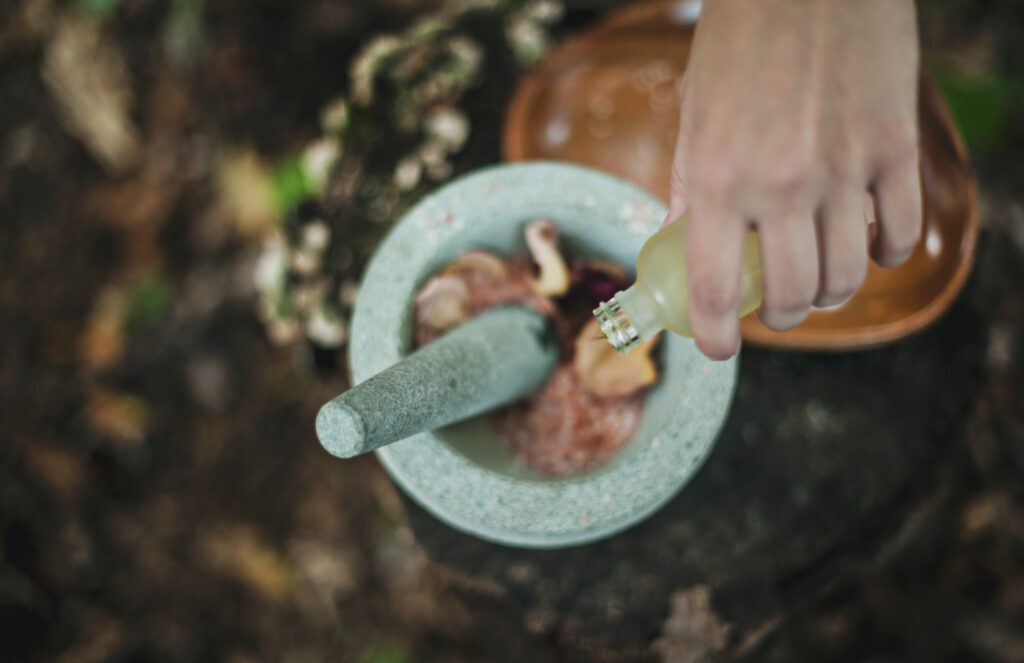
Incorporating natural herbal products into face masks offers numerous advantages, especially for those with acne-prone skin. Among the significant benefits of utilizing natural herbal components in your facial masks are the following:
- Gentle on Skin: Natural and herbal ingredients are typically gentler on the skin than synthetic chemicals; opting for these ingredients could be beneficial for sensitive or acne-prone skin. They are less likely to result in allergic reactions, redness, or irritation.
- Nutrient-Rich: Ingredients sourced from nature and herbs are typically rich in vital vitamins, minerals, and antioxidants. These elements can feed the skin, enhancing its overall health and radiance. These nutrients can help fight inflammation, reduce redness, and promote healing in acne-prone skin.
- Anti-Inflammatory Properties: Natural and herbal ingredients, like aloe vera, chamomile, and green tea, possess anti-inflammatory properties that can effectively calm and soothe irritated skin. Such properties can be highly beneficial for people who suffer from acne, as inflammation can often exacerbate breakouts.
- Antibacterial and Antifungal Benefits: Some natural ingredients, like tea tree oil, neem, or honey, have antibacterial and antifungal characteristics, which can combat bacteria that trigger acne, thereby averting potential future outbreaks.
- Customizable: Using natural and herbal ingredients in your face masks allows you to tailor the formula to your specific skin needs. You can combine various ingredients to create a unique blend that addresses your unique skin concerns.
- Eco-Friendly: Natural and herbal products are often more sustainable and environmentally friendly than synthetic alternatives. They typically require fewer resources to produce and are more biodegradable, reducing their impact on the environment.
- No Harmful Side Effects: You may steer clear of many of the possible negative effects of synthetic chemicals, like irritation, hormone disruption, and long-term health issues, by making your face masks with natural and herbal ingredients.
In general, incorporating natural herbal items into your at home face mask can offer several advantages for your skin and overall health. They offer a safer, more gentle, and more eco-friendly alternative to synthetic ingredients. This is especially useful for individuals with acne-prone or sensitive skin.
Why DIY Homemade Herbal Face Masks
Creating your own DIY herbal homemade face masks offers several advantages over store-bought options, particularly for those with acne-prone or sensitive skin. Consider making your own herbal face masks for some of the top reasons listed here:
- Ingredient Control: When you create your own face masks, you have the authority to choose the ingredients that you want to use. This allows you to avoid any chemicals that could potentially irritate your skin or worsen your acne. You can also choose natural, organic, and high-quality ingredients to ensure the best results.
- Customizable Formulations: DIY face masks give you the flexibility to tailor the formulation to your specific skin needs and concerns. You can experiment with different natural ingredients and combinations to find the perfect mask that targets your acne concerns or other skin issues.
- Cost-Effective: Making your own face masks can be more cost-effective than purchasing pre-made products, especially if you use ingredients that are readily available in your pantry or can be easily sourced. This way, it is cheaper and still reaping the benefits of natural, high-quality skincare.
- Freshness and Potency: When you make your own face masks, you can ensure that the ingredients are fresh and potent, providing the maximum benefits for your skin. Over time, store-bought products can lose their effectiveness as the ingredients degrade or become exposed to air and light.
- Reduced Waste and Environmental Impact: DIY face masks help reduce packaging waste and the environmental impact associated with mass-produced skincare products. By making your own masks, you can use reusable containers and minimize your carbon footprint.
- Fun and Creativity: Crafting homemade face masks can offer a creative and enjoyable approach to delve into the realm of organic skincare. This presents an excellent occasion to deepen your knowledge about diverse ingredients, their benefits, and how they work together to improve your skin’s health and appearance.
- Bonding and Self-Care: Creating and using homemade herbal face masks can also be a relaxing and enjoyable self-care activity. You can also include your friends or family members in the process, making it a great way to bond while pampering your skin.
In summary, DIY herbal homemade face masks offer numerous benefits, including ingredient control, customization, cost savings, and environmental responsibility. By making your own masks, you can ensure that you’re using the best possible ingredients for your skin while enjoying a fun and creative self-care experience.
How to Choose the Right Natural Face Mask for Your Skin Type
Selecting the right natural at home face mask recipe for your skin type is crucial in order to maximize the benefits and ensure that you’re addressing your specific skin concerns. Consider this guide to select the most suitable at home face mask for your skin type:
- Oily and Acne-Prone Skin: Look for face masks that contain ingredients with antibacterial, anti-inflammatory, and oil-absorbing properties. Ingredients such as clay, activated charcoal, tea tree oil, honey, and green tea are great for reducing excess oil, unclogging pores, and calming inflamed skin.
- Dry Skin: Choose face masks with hydrating and moisturizing ingredients that can help replenish your skin’s moisture levels. Ingredients like aloe vera, honey, avocado, and yoghurt are ideal for nourishing dry skin and providing essential hydration.
- Sensitive Skin: Opt for face masks with gentle, soothing ingredients that won’t irritate your delicate skin. Look for ingredients like chamomile, oatmeal, calendula, and aloe vera, which can assist in calming the redness and inflammation while providing gentle nourishment.
- Combination Skin: If your skin exhibits both oily and dry characteristics, you might need to apply different types of face masks to address the varying needs of distinct areas on your face. For instance, you can use a clay mask on the oily T-zone and a hydrating mask on the drier areas. Alternatively, you can choose face masks with balancing ingredients like rosewater and witch hazel that can address both oiliness and dryness.
- Mature Skin: For mature skin, focus on face masks with ingredients that promote cell regeneration, boost collagen production, and provide deep hydration. Ingredients like vitamin C, hyaluronic acid, green tea, and Rosehip oil has been shown to have benefits for improving skin elasticity and reducing the appearance of fine lines and wrinkles.
- Dull or Uneven Skin Tone: To enhance the radiance of your skin and promote uniformity in your skin tone, look for face masks with ingredients that have natural exfoliating and brightening properties. Natural ingredients such as papaya, lemon, turmeric, and licorice root can effectively eliminate dead skin cells, resulting in a glowing, uniform skin tone.
Keep in mind that every person’s skin is different, and it might take some trial and error with various face masks and components to discover the ideal blend for your skin type. Before applying any new skincare products or ingredients, it’s important to conduct an allergic test on a small area of your skin.
Tips for Success in Creating and Using Homemade Herbal Face Masks
- Patch test: Prior to using any novel components or products for the skin, it’s important to conduct an allergic reaction on a small area of your skin. This helps ensure that you don’t have an adverse reaction to any of the ingredients.
- Fresh ingredients: Use fresh, high-quality ingredients to maximize the benefits of your homemade face masks. Organic and pesticide-free ingredients are preferable, as they minimize the risk of skin irritation.
- Clean tools: Make sure to use clean tools and utensils when preparing your face masks. This prevents the introduction of bacteria and contaminants, which can cause skin irritation or infections.
- Proper storage: Ensure to store your DIY face masks in sealed containers to maintain their freshness and prevent any impurities from contaminating them. Refrigerate perishable ingredients to extend their shelf life.
- Regular use: For best results, use your homemade face masks consistently. How often you use your homemade face, masks can be tailored according to your skin’s characteristics and the specific mask you have prepared.
- Cleanse before application: Always cleanse your skin thoroughly before applying a face mask. This removes dirt, oil, and makeup, allowing the mask’s ingredients to penetrate deeper into your skin.
- Apply evenly: Use a brush or your fingertips to apply the face mask evenly on your skin. Make sure to avoid the delicate areas around your eyes and lips.
- Time it right: Stick to the advised time frame for each face mask. Keeping it on for an extended period may result in discomfort or excessive dryness, whereas taking it off prematurely may not yield the anticipated outcomes.
- Gentle removal: Remove the face mask gently with lukewarm water and a soft washcloth. It is advisable to refrain from rubbing or scrubbing your skin to remove the mask to prevent irritation.
- Moisturize: After removing the face mask, don’t forget to moisturize your skin. This maintains your skin’s moisture and aids in the retention of benefits of mask.
- Adapt to your skin’s needs: Listen to your skin and adjust your face mask routine accordingly. If you notice any irritation or negative reactions, discontinue the use of that particular mask and try a different recipe or ingredient.
You can ensure the efficacy of your herbal homemade face masks and reap the benefits of natural skincare by following these guidelines.
Top 10 Homemade Herbal Natural Face Mask Recipes for Pimples
Honey and Turmeric Face Mask
- Overview:
This anti-inflammatory and antibacterial diy face mask recipe combines the healing properties of honey with the powerful antioxidant and antiseptic effects of turmeric.
Benefits:
Reduces inflammation, fights acne-causing bacteria, and brightens skin.
Ingredients:
- 1 tablespoon raw honey
- 1/2 teaspoon turmeric powder
- Small bowl
- Spoon
- Face Brush
- In a small bowl, combine turmeric and honey.
- Administer the blend to your recently washed face utilizing a brush or your fingertips.
- Apply 1-2 times a week for best results.
- Store any remaining mixture in refrigerated condition in a sealed container for up to a week.
Green Tea and Aloe Vera Face Mask
Overview:
The antioxidant-rich green tea and soothing aloe vera in this at home face mask recipe work together to combat acne and soothe irritated skin.
Benefits:
Reduces redness, fights acne, and soothes inflammation.
Ingredients:
- 1 green tea bag
- 2 tablespoons aloe vera gel
Tools or items needed:
- Small bowl
- Spoon
- Face brush
Preparation method:
- Give the green tea bag three to five minutes to steep in hot water.
- After letting it cool, take out the tea bag.
- In a small bowl, mix together the green tea leaves and aloe vera gel after opening the tea bag.
Application:
- Administer the blend to your recently washed face utilizing a brush or your fingertips.
- Apply 1-2 times a week for best results.
Storage instructions:
- To store any leftover mixture, Keep the blend in the fridge for a maximum of one week in a sealed container.
Bentonite Clay & Apple Cider Vinegar Face Mask
Overview:
This detoxifying homemade face masks uses bentonite clay to draw out impurities and apple cider vinegar to balance the skin’s pH levels.
Benefits:
Deep cleanses, unclogs pores, and reduces inflammation.
Ingredients:
- 1 tablespoon bentonite clay
- 1 tablespoon apple cider vinegar
- Small bowl
- Spoon
- Face brush
- Place the apple cider vinegar and bentonite clay in a small bowl.
- Mix with apple cider vinegar just before use.
- Gently spread the mixture onto your facial skin with a brush or your fingers.
- Apply once a week for the best results.
- Store dry bentonite clay in an airtight container at room temperature.
Yoghurt and Oatmeal Face Mask
Overview:
This gentle exfoliating diy face masks uses yoghurt’s natural lactic acid to remove dead skin cells, while oatmeal soothes and hydrates the skin.
Benefits:
Exfoliates, moisturizes, and reduces inflammation.
Ingredients:
- 2 tablespoons plain yoghurt
- 1 tablespoon ground oatmeal
- Small bowl
- Spoon
- Face brush
- Mix yoghurt and ground oatmeal in a small bowl.
- Gently spread the mixture onto your facial skin with a brush or your fingers.
- Apply 1-2 times a week for best results.
- Store any leftover mixture in refrigerated condition in an airtight container for up to a week.
Cucumber and Honey Face Mask
Overview:
This hydrating diy face mask recipe uses the cooling and soothing properties of cucumber and the antibacterial benefits of honey to calm and nourish acne-prone skin.
Benefits:
Hydrates, soothes, and fights acne-causing bacteria.
Ingredients:
- 1/2 cucumber, peeled and chopped
- 1 tablespoon raw honey
- Blender
- Small bowl
- Spoon
- Face brush
- Blend the peeled and chopped cucumber until smooth.
- Mix the cucumber puree and raw honey in a small bowl.
- Gently spread the mixture onto your facial skin with a brush or your fingers.
- Apply 1-2 times a week for best results.
- Store any leftover mixture in a refrigerated condition in an airtight container for up to a week.
Turmeric and Yogurt Face Mask
Overview:
This DIY at home face mask recipe is an excellent self-care solution for those battling acne, as it helps alleviate the presence of pimples in skin that are prone to breakouts. The blend of turmeric and yoghurt creates a powerful combination of anti-inflammatory, antibacterial, and exfoliating properties that help reduce redness, fight acne-causing bacteria, and gently exfoliate dead skin cells.
Benefits:
This potent mix soothes existing pimples and prevents new acne from forming, making it an effective and holistic treatment for acne-prone skin.
Ingredients:
- One teaspoon of turmeric powder
- Two tablespoons of plain yoghurt
- Small bowl
- Spoon or spatula for mixing
- Face towel or cloth
- Take a small bowl, add some turmeric powder, then add some yoghurt and mix it until a paste is formed.
- Before putting on the mask, make sure your face is clean and dry.
- Spread the mixture onto your face while steering clear of the regions around your eyes and mouth.
- Let the mask sit for 15-20 minutes, giving the ingredients time to act.
- Cleanse your face using warm water and utilize a facial towel or fabric to wipe away any residual remnants of the mask.
- Gently dab your skin dry and proceed with your usual skincare regimen.
- This face mask is best prepared and used immediately, so storage is not required.
Egg White and Tea Tree Oil Face Mask
Overview:
This homemade face masks uses the tightening properties of egg whites and the antibacterial benefits of tea tree oil to fight acne and reduce the appearance of pores.
Benefits:
Tightens pores, reduces inflammation, and fights acne-causing bacteria.
Ingredients:
- 1 egg white
- 2-3 drops of tea tree oil
Tools or items needed:
- Small bowl
- Whisk or fork
- Face brush
Preparation method:
- In a vessel, whip the egg white until it becomes frothy.
- Mix in the tea tree oil
Application:
- Gently spread the mixture onto your facial skin with a brush or your fingers.
- Apply 1-2 times a week for best results.
Storage instructions:
- Store any leftover mixture in refrigerated condition in an airtight container for up to a week.
Banana and Baking Soda Face Mask
Overview:
This diy face masks uses the natural enzymes in bananas to exfoliate and soothe the skin, while baking soda helps to balance the skin’s pH levels.
Benefits:
Exfoliates, soothes, and balances skin.
Ingredients:
- 1 ripe banana
- 1 teaspoon baking soda
- Small bowl
- Fork or spoon
- Face brush
- Crush the ripe banana into paste in a bowl.
- Mix in the baking soda.
- Gently spread the mixture onto your facial skin with a brush or your fingers.
- Apply 1-2 times a week for best results.
- Store any leftover mixture in refrigerated condition in an airtight container for up to a week.
Green Clay and Rose Milk Face Mask
Overview:
Clay masks effectively remove excess oils and toxins from the skin and unclog, purify, and refine pores for a soft, smooth complexion. This diy face mask recipe allows you to prepare and store the dry ingredients ahead of time and create a single-use fresh mask by adding a little rosewater to form a spreadable paste.
Benefits:
This mask suits oily, combination, normal, sensitive, congested, and acne-prone skin types.
Ingredients:
- 1/2 cup green clay
- 1/2 cup kaolin clay
- 1/2 cup powdered milk (full-fat dairy, soy, or coconut)
- Rosewater (as needed)
- 8-ounce jar with a lid
- Small mixing bowl
- Spoon
- Face towel or cloth
- After making sure the jar’s lid is tight, add the dry ingredients and shake the jar vigorously to combine the ingredients.
- Label the jar with contents and date. Store it for up to a year.
- Before using the mask, mix two teaspoons of the powdered mixture with rosewater in a small bowl.
- Gradually add the rosewater while stirring to moisten the powder until the desired consistency is achieved.
- Smooth a generous layer of the mask onto freshly cleansed skin.
- Distribute the mask uniformly across your face and allow it to sit for a duration of 10 to 25 minutes. Afterwards, rinse off with warm water. For sensitive skin types, rinse off within 5-10 minutes.
- Follow up with toner and moisturizer.
- Storing dry ingredients in an airtight container is recommended to preserve their freshness and effectiveness.
- The dry ingredients can last up to one year with proper storage.
- To store the mixture after blending the dry ingredients with rosewater, place it in a tightly sealed container and keep it refrigerated.
- Using the mix within four days is recommended to ensure freshness and maximum effectiveness.
Coffee and Coconut Oil Face Mask
Overview:
This invigorating at home face mask combines the exfoliating properties of coffee grounds with the moisturizing and antibacterial benefits of coconut oil.
Benefits:
Exfoliates, moisturizes, and fights acne-causing bacteria.
Ingredients:
- 1 tablespoon coffee grounds
- 1 tablespoon coconut oil, melted.
- Small bowl
- Spoon
- Face brush
- Mix the coffee grounds and melted coconut oil in a small bowl.
- Administer the blend to your recently washed face utilizing a brush or your fingertips.
- Apply 1-2 times a week for best results.
- Any leftover mixture can be stored for up to a week at room temperature in an airtight container.
Conclusion
Homemade face masks can provide a natural and effective solution for managing pimples and achieving clearer, healthier skin. By using fresh, high-quality ingredients and customizing your at home face mask recipe to suit your skin type and specific concerns, you can enjoy the benefits of a tailored skincare routine without the harsh chemicals found in many commercial products. Give these 10 herbal homemade face mask recipes a try and discover the difference that natural remedies can make for your acne-prone complexion.
Related Topic's
A Guide to Aloe Vera for Pimple Free Skin Naturally
